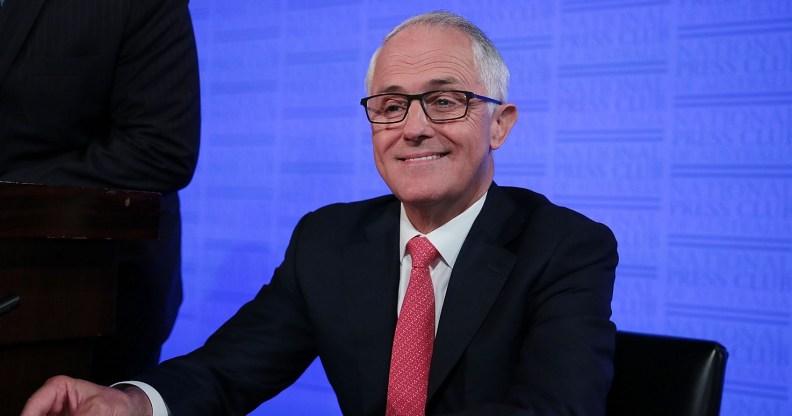Australian LGBT campaigners warn over plans for ‘rigged’ postal ballot on same-sex marriage

LGBT campaigners have rejected Australian government proposals to hold a postal ballot on same-sex marriage, which they say would benefit the No campaign.
A political stalemate on equal marriage in Australia has been in place since last year, when a plan for a public vote (plebiscite) on the issue was blocked.
Australian PM Malcolm Turnbull is believed to have made assurances to his Coalition’s anti-LGBT wing during his leadership bid that he would seek a public vote before any legislation on same-sex marriage – and the leader recently shot down calls for a quick vote in Parliament to resolve the issue.
This week, the government is reported to be working on new proposals for a ‘postal ballot’ on the issue.
Unlike voting in Australia, which is compulsory, participation in the postal ballot would be opt-in, which LGBT activists say appears to benefits the anti-gay marriage lobby by eroding the base of ‘soft’ support for equality.
Activists also warn that the new proposal fails to address any of the fundamental problems with putting equality up to a public vote, and the homophobic culture debate that would ensue.
In an article published on SameSame, marriage equality campaigner Rodney Croome wrote: “There will be no parliamentary oversight of the question, the campaigns for and against the proposition, or the voting procedure.
“A non-compulsory vote also means the 30% of the electorate who are soft supporters of marriage equality are much less likely to vote.
“Another problem is that a vote run entirely through the post could favour older voters and disenfranchise younger ones, further skewing the results against marriage equality.
“The current plebiscite proposal wouldn’t just be easy to rig, it would be inherently rigged.
He added: “In 2016 the LGBTI community said ‘no’ to Plebiscite Mark I.”
“Our concern was that such a high profile and unnecessary public debate would have an adverse impact on the mental health of vulnerable LGBTI people, especially young people.”
“This concern ran so deep 85% of LGBTI Australians said they would rather wait for marriage equality than achieve it through a plebiscite.”
“The broader community also said “no” to a plebiscite because of concern about the cost and the fact politicians could ignore the result.”
“Plebiscite Mark II may reduce the financial cost of a plebiscite but the human cost would remain.”
Meanwhile, Iain Anderson of the Attorney-General’s Department confirmed the Government has requested “advice” on a potential postal ballot.
He said: “They’ve asked us for some advice in relation to a postal plebiscite.
“I’m not aware of any actual proposal, I’m just saying we’ve been asked for some advice.”

